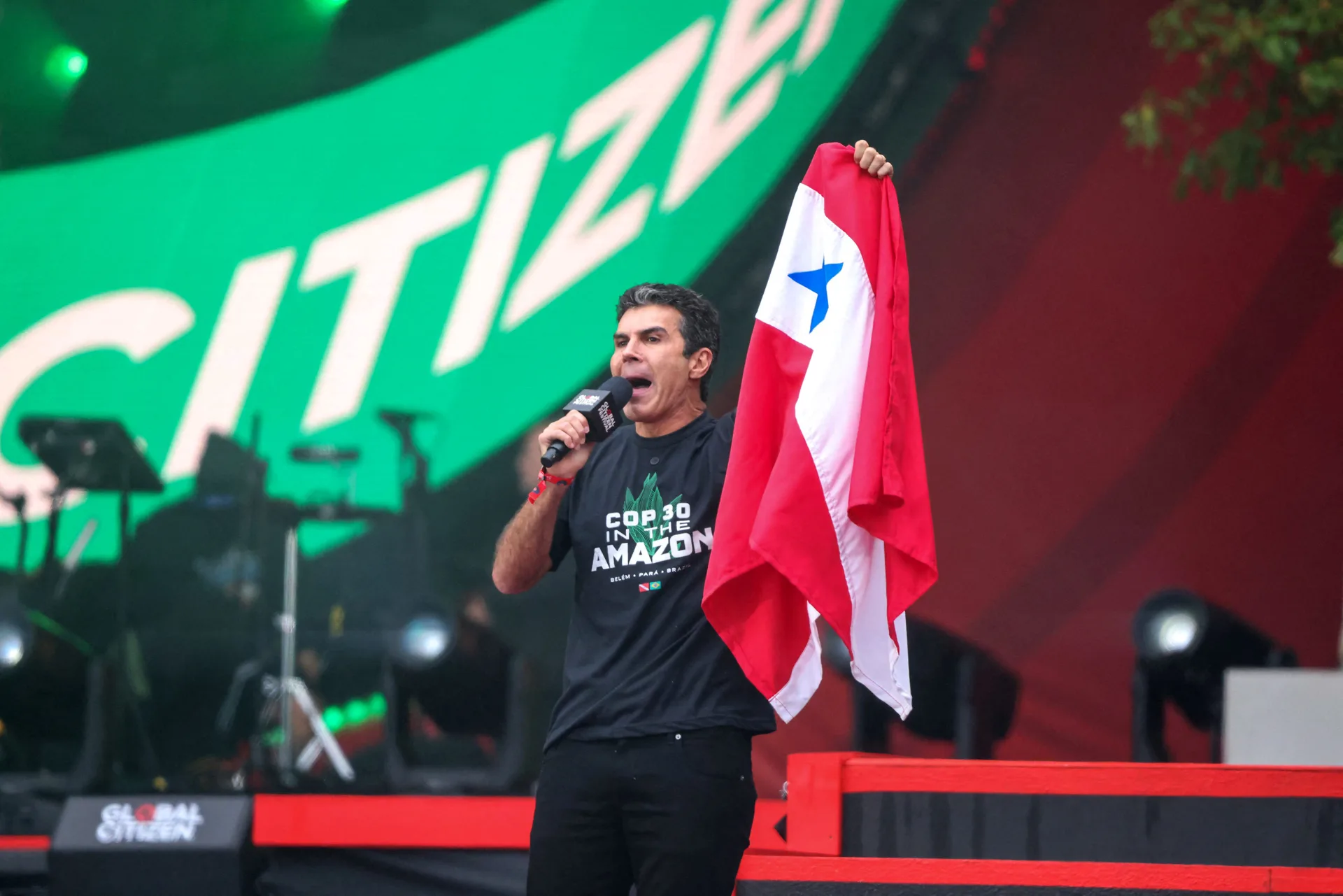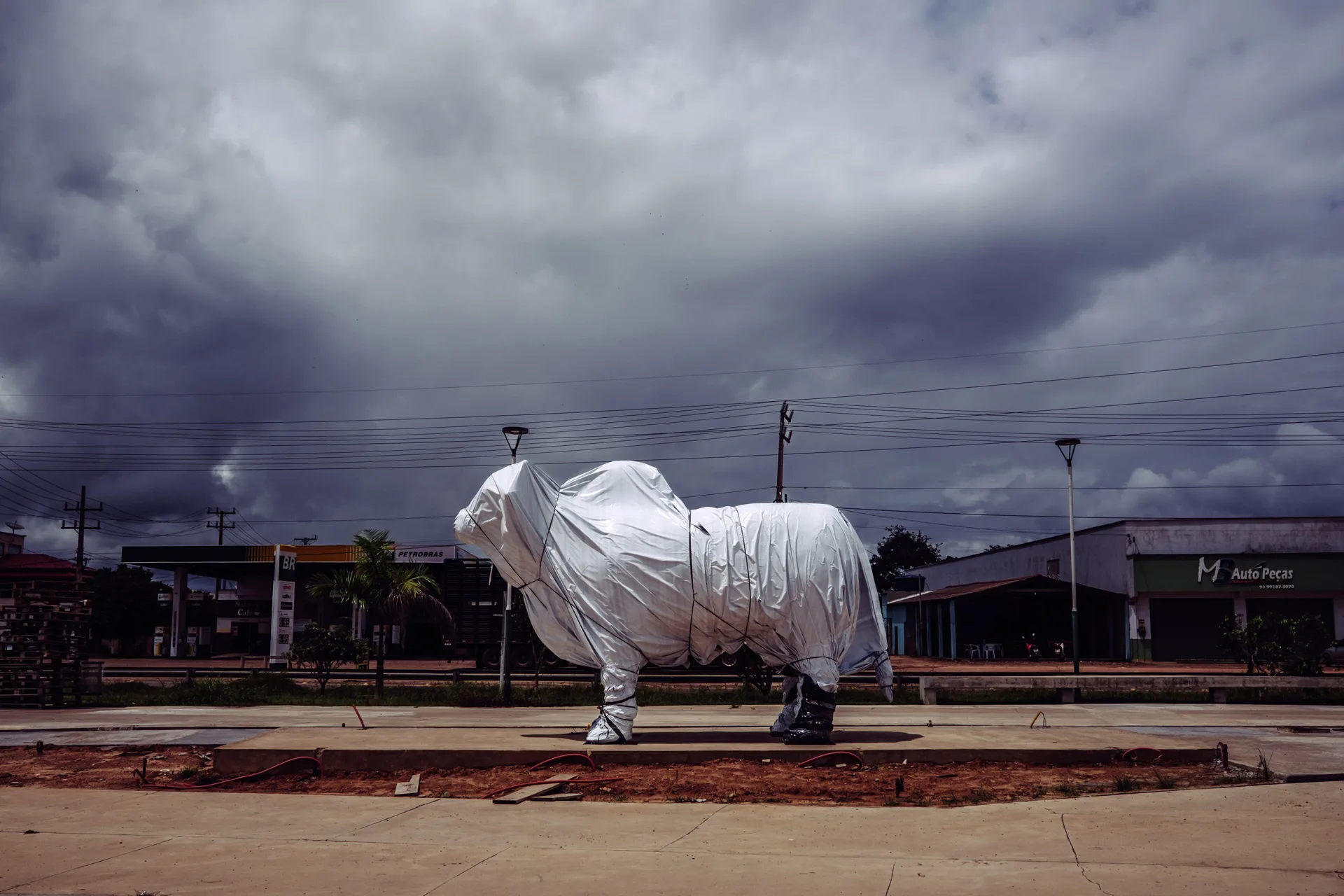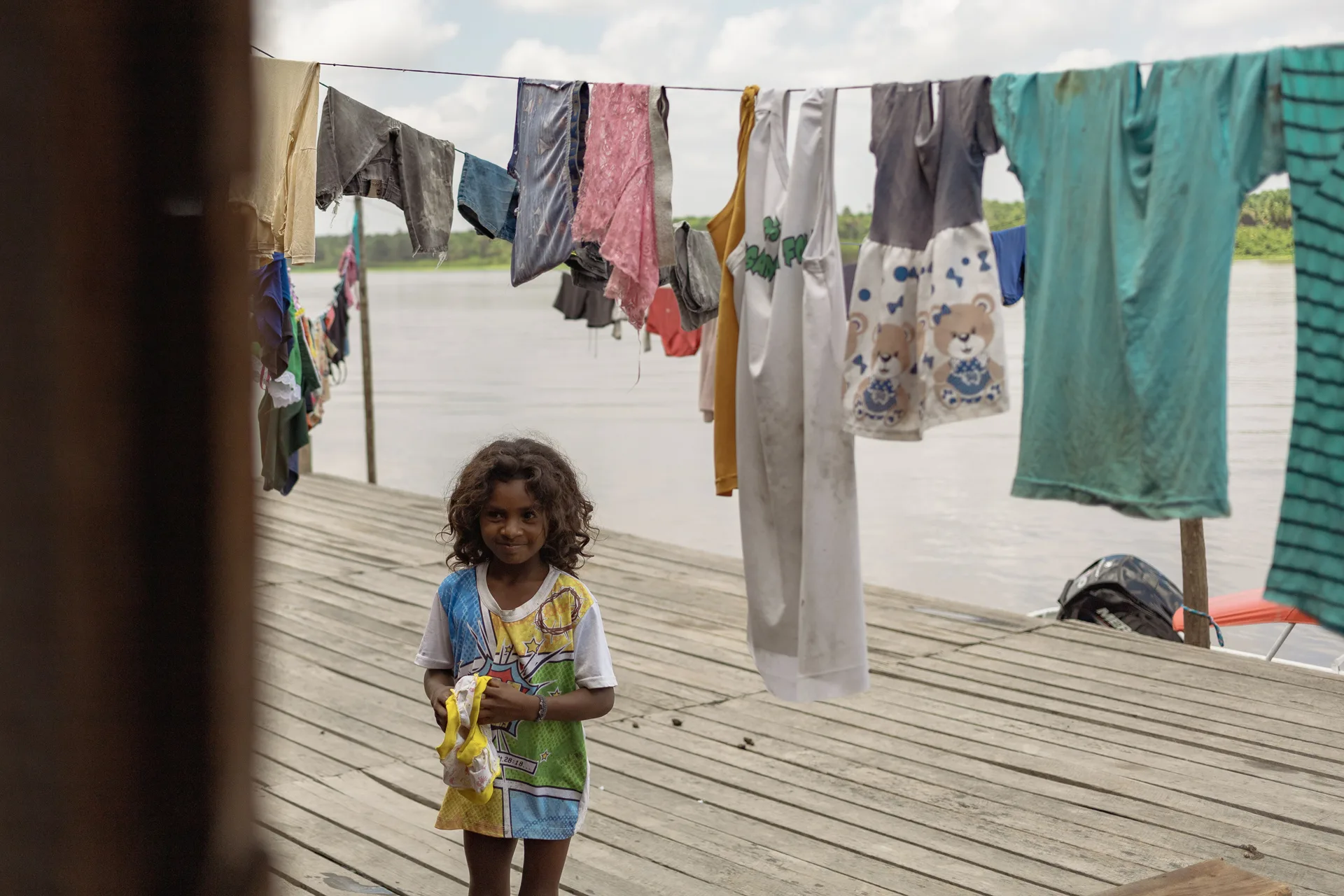On October 6, Brazilians will go to the polls to elect mayors and city council members in 5,568 municipalities across the country, although not a single campaign has even touched on the most important issue. Or do any of you remember a relevant, serious debate that has addressed global heating and the extinction of biodiversity? If there was one, it didn’t make the news. But the collapse of our planet has a major impact on politics and is directly related to the rise of the far right around the world—and also in Brazil. The question is: What do political parties and politicians have to offer as the Earth heats up, droughts and floods multiply, extreme weather events grow more common and more serious, and scientists are warning we have entered uncharted territory?
Apparently, if we are to take Brazil’s largest, financially richest city as the model, the answer is verbal assaults, baseless accusations, lies, and outright physical aggression. São Paulo ranks as the world’s most polluted metropolis, 60% of Brazilian territory has recently been shrouded in smoke from forest fires (most the result of arson), people have gone back to wearing masks to protect themselves from contaminated air—and none of this has been discussed by any candidate, from north to south. The debasement of politics is inevitable when politicians and voters, faced with the risk of extinction, talk about everything but the fact that their world is collapsing and that every action taken by every mayor and every decision by every city council should be approached with this reality in mind if it is to have a real, positive impact.
In cities like São Paulo—home to a significant portion of destroyers of the Amazon and the financial instruments at their service—what should be at the heart of political campaigns are issues such as water management, the protection of springs and the vegetation around surviving rivers, water and air pollution abatement, better mass transit (replacing fossil fuel cars and shifting to greener models ASAP), a master plan compatible with life rather than with accelerating destruction, a stronger healthcare system, which takes into account the prospect of proliferating viruses and bacteria—all against the backdrop of a robust plan of actions to mitigate and adapt to a changing climate and mutating landscape.
Municipalities in the state of Pará wield the enormous power to authorize mining in their territories. So Governor Helder Barbalho (Brazilian Democratic Movement) gives “green” speeches all over, posing as a sustainability leader while washing his hands inside his own state, letting the mayors there do as they please and thus securing their support. All across the Amazon, forest destroyers are polling out front. Not because they’re fooling voters but because destroying Nature garners votes.
São Paulo and Amazonian states like Pará are connected. We must see the links and ramifications—which pass through Brasilia, as we show in this issue.

Fool’s gold: Helder Barbalho (Brazilian Democratic Movement) is governor of Pará, the only state in the Brazilian Amazon where a municipality can authorize gold mining operations. Photo: Wanessa Carvalho/Brazil Photo Press/AFP
In these elections, most candidates have opted yet again for denialism. Nearly every campaign has been denialist. One question we might ask: How much does this have to do with voter denialism?
In its worldwide advance, the far right is largely a consequence of the insecurity produced by a changing world; it thrives on uncertainty and despair. If everything is collapsing around you and the ground gives way—ever more often quite literally—you’ll demand guarantees and rescue. Lacking the emotional resources to cope with risks most people can’t even begin to fathom, many people who feel they are losing their place in life—no matter how precarious it might already be—turn violent.
As we face climate collapse, the far right offers a clear response: a return to a past that never existed. A return to a glorious past, free of conflict, where each gender and each race knew their place, where white, male supremacy went unchallenged, and where the only families were composed of one man and one woman, while the LGBQTIA+ community hid in the closet or underwent medical treatment. This imagined social and cultural immutability supposedly corresponds to an immutable path through life: we are born, grow up, go to school, form a traditional family, get a steady job, build our own business or inherit our family’s, and die knowing that coming generations will follow the same path.
Well, this was never the case for most people in the past, and it isn’t the case for hardly anyone today. What the far right promises is obviously a lie, given that this past was only possible by leaving most people mired in poverty, wretchedness, or slavery. A telling of history that respects the facts reveals that there have been heavy conflicts that cost the lives of the most vulnerable. The far right’s promises are also a tremendous ruse because no immutability is possible in any area of life on a planet undergoing accelerated change.
The far right has thus corrupted truth, inventing a story about the past and likewise about the present and selling frightened people the lie that our reigning insecurity shouldn’t be blamed on capitalist colonialism—which includes among its acts of violence the conversion of Nature into a commodity and which may increase the planet’s average temperature by four degrees Celsius or more—but on the alleged moral “degeneration” brought about by the left.
When Pablo Marçal (Brazilian Labor Renewal Party), the São Paulo mayoral candidate who has taken Bolsonarism radically farther than Jair Bolsonaro himself, heads into a debate to fire off attacks while demonstrating no concern about presenting a project or plan and polls have him technically tied for first place with a traditional right-winger, Ricardo Nunes (Brazilian Democratic Movement), and a politician from the left, Guilherme Boulos (Socialism and Liberty Party), that’s it. Nothing matters, except the possibility of believing the lie that everything is going to be fine. So Pablo Marçal can claim he’s going to solve traffic problems in São Paulo by introducing cable cars in a city with 11.5 million inhabitants, and yet proclaiming this monumental nonsense doesn’t cost him any votes. People have embraced the biggest lie, that everything will be fine if the left doesn’t come to power, so anything can be said.
When José Datena (Brazilian Social Democratic Party) clubbed Pablo Marçal with a chair, it showed just how much the traditional right has no clue what to do with the far right, which is usurping its votes. Datena spent years on television arguing that the culprits behind all evils are poor, young Black men, who are criminalized and abused in images that are exhibited incessantly, generally without any questioning of Brazil’s violent inequality and structural racism. Then he was left speechless when confronted by someone who accused him just as glibly and irresponsibly as he had accused poor Black youth.
But what about the left, what do they have to say to the voters?
The left is at a crossroads. There is the old left, with Luiz Inácio Lula da Silva as its representative in Brazil, who still believes the only thing people care about is having a car in their garage, enjoying a barbecue and beer on the weekends, and buying their own home, filled with the latest appliances. And as long as this is guaranteed, life will go on. Lula and much of the Workers’ Party have missed the acceleration of the climate collapse in recent years, as well as important changes in what new generations want and need.
This left, which is much more center than left and whose main spokesperson in Brazil is the Workers’ Party, calls itself the left at the same time that it advocates boosting oil production and opening a new front for fossil fuel exploration in the Amazon, while global temperatures rise 1.5 degrees Celsius largely because of oil, coal, and natural gas. This left calls itself left at the same time it advocates paving federal highway BR-319, which connects Manaus to Porto Velho, and building the Ferrogrão, a railroad that would cut through the rainforest to haul out soybeans and other goods produced by big corporations and large agricultural landholdings. And it defends these two major projects although it has been proven that they would seriously aggravate the already dramatic deforestation of the Amazon, all while the forest burns. It calls itself the left while lowering taxes on meat, when it is a well-known and proven fact that cattle are one of the main vectors of deforestation in the Amazon and Cerrado and a major emitter of greenhouse gases. When they belch, cattle—which now outnumber humans in Brazil—exacerbate global heating.

Old Brazil: the Pará municipality of Brasil Novo—New Brazil—pays tribute to cattle, the tragic vector of deforestation. Photo: Christian Braga/SUMAÚMA
This left consolidated itself in the 20th century and is having a hard time leaving it behind. And then there are the new lefts, who have reached the 21st century and understand the gravity of this moment—in Brazil, still very short on votes. Guilherme Boulos and the Socialism and Liberty Party, as well as the Sustainability Network party, of which Environment Minister Marina Silva is a member and which perhaps doesn’t even identify as the left, have come closest to a political stream more attuned to the spirit of the times—or to the spiritless times we seem to be living in, with much of the population so denialist that they deny being denialist.
But what do leftists who understand the gravity of the moment have to offer?
The most honest politicians must tell their voters that just voting isn’t enough. In addition to voting much more wisely, in order to remove active or passive denialists from positions of power, voters must participate more actively in decisions. They must put pressure on lawmakers and local government leaders on a daily basis, demanding new projects and emergency mitigation and adaptation measures but also demanding that the huge corporations currently consuming Nature be stopped. They must push both for the definitive burial of the legal thesis that nullifies any Indigenous claims to land not physically occupied on October 5, 1988, and for the immediate demarcation of all Indigenous territories, complying with the Constitution after a decades-long wait.
These politicians must also say we have to take much greater responsibility for choices made in the present, because these decisions will determine not only voters’ lives but the lives of their children and grandchildren, and not a century from now but next year. The most honest politicians must say that life is going to go from bad to worse. And they must say that we must learn to lose. Changing our eating habits and the way we move around and between cities is just the beginning. It’s not enough to recycle the remnants of our consumption; we have to consume far less.
Between lies that offer the comfort of hope and truths that demand sacrifice and loss, who is going to vote for the politician who tells the truth? The answer must be “us.” We must vote for those who tell the hard truth but are willing to fight. This is the beginning of a change that needs to happen very quickly, because the planet’s landscape is changing rapidly. The politicians who say what is hardest to hear and even harder to do are key to our chances of having a tomorrow.
We need to change, and not for our sakes but for the sakes of the human and nonhuman children who will have to live on a more hostile planet. We need to fight for every last fraction of quality of life, because what is at stake today is whether this decline in the quality of life will be so steep that it makes life nearly inviable, or if it will be manageable and partly recoverable. This task is non-transferrable. Coming generations can only count on us, adults, to stop the consumers of worlds.
The votes we cast at the highly reliable electronic urns on October 6 will define four crucial years of our lives. We don’t have another four years to wait.
***
At SUMAÚMA, we are not pessimists. Nor are we optimists. We deal in reality, facts, and complexity, as befits journalism that merits this name.
In this election newsletter, we have chosen to report on four locations in the Brazilian Amazon—Medicilândia, Novo Progresso, and Marajó, all in Pará, and Sinop, in Mato Grosso—so they can tell us how different forces are working together politically, how these forces are taking action every day, and how they tie in with power disputes in Brasilia. Our journalism doesn’t see the world as fitting into little boxes, and that’s why our election coverage is transversal.
What happens in the Amazon is largely decided in Brasilia, yet these decisions don’t start in Congress but in a colonial-style mansion that houses—and shields—the Thinking Agribusiness Institute, a think tank for the lobby representing so-called agribusiness and large corporations. In the infographic that accompanies the text, you will discover, for example, that the brand you’ve been buying because you believed it to be “sustainable” has helped fund the agribusiness lobby and push through laws against life, such as the Poison Bill, which weakened legislation regulating pesticides.
We have also included stories and articles that can help our readers think about what is most important. We hope to help you choose life in these elections and every day that follows.
Vote well. Vote for the sake of future generations.

Crianças do presente: a qualidade da vida da menina de Melgaço, no Pará, depende da nossa capacidade de votar bem. Foto: Gabriela Portilho/SUMAÚMA
Text: Eliane Brum
Fact-checker: Plínio Lopes
Proofreader (Portuguese): Valquíria Della Pozza
Spanish translation: Meritxell Almarza
English translation: Diane Whitty
Photo Editor: Lela Beltrão
Copyediting and finishing: Natália Chagas
Editorial workflow coordination: Viviane Zandonadi
Editor-in-chief: Talita Bedinelli
Editorial director: Eliane Brum





